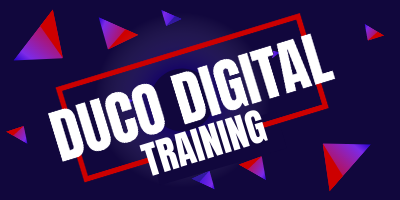
In an age where digital technologies are reshaping entire industries and consumer behaviours, Digital Product Management has become a pivotal role that extends its influence across multiple facets of a business. The field is undergoing a seismic shift, evolving rapidly from a role focused mainly on managing product features and schedules to a strategic position that requires a blend of business acumen, technological know-how, and human-centred design thinking.
This article explores the multi-dimensional aspects of modern Digital Product Management, the complexities it brings, and the skillsets required to navigate this ever-changing landscape effectively.
The Multi-Dimensional Role of the Digital Product Manager
Product Managers in the digital realm find themselves at the intersection of technology, business, and user experience. The role has significantly evolved from merely overseeing product development to being a comprehensive decision-maker that harmonises various business functions — be it sales, marketing, engineering, or customer service. Digital Product Managers today are expected to be visionaries who can foresee market trends, strategists who can navigate complex business terrains, and tacticians who can execute plans to perfection.
Adaptive Leadership: More than Stakeholder Management
Traditional stakeholder management techniques are no longer sufficient. The complexity of modern organisations demands adaptive leadership skills — where influencing change and anticipating market shifts are as crucial as aligning internal teams. Digital Product Managers today need to nurture an organisational culture conducive to innovation, where failure is considered an opportunity for learning and where cross-functional teams can collaborate effortlessly for holistic product development.
The Rise of Data-Driven Decision-Making
Data is the new oil, and Digital Product Managers are increasingly finding themselves in the role of data custodians. The age of making decisions based solely on intuition or anecdotal evidence is long gone. Now, each decision — from feature prioritisation to market positioning — needs to be backed by robust data analysis. Tools ranging from analytics dashboards to machine learning algorithms are providing invaluable insights that can dramatically influence product strategy.
The Imperative for Data Literacy
Data literacy goes beyond understanding basic analytics; it involves the ability to derive actionable insights from complex data sets and even predict future trends using machine learning and artificial intelligence. As organisations strive to adopt a data-centric culture, the role of a Digital Product Manager is evolving to become the bridge between data science teams and business units, ensuring that data insights are translated into strategic actions that drive business value.
Agility Beyond Development
Agile development has revolutionised how products are built, enabling more flexible and adaptive approaches compared to traditional Waterfall methodologies. However, agility shouldn’t be confined solely to the development process. The principles of Agile management can be extended to all facets of a product’s lifecycle, from ideation and market research to customer feedback and product iteration.
Creating a Culture of Agility
Organisational agility is about more than just adopting a set of methodologies; it’s about fostering a culture that is receptive to change, both from the market and within the organisation. It involves flattening hierarchies to facilitate better communication, promoting cross-functional collaboration, and encouraging a mindset of continuous improvement. Such a culture enables businesses to adapt rapidly to market changes and consumer preferences, thus securing a competitive advantage.
Ethical Dimensions and Sustainable Practices
In a world where data breaches and ethical lapses regularly make headlines, Digital Product Managers cannot afford to sideline ethical considerations. Issues such as data privacy, cybersecurity, and even the environmental impact of products are becoming front-and-centre concerns in the product development process.
The New Ethical Paradigm
Being ethical in Digital Product Management is not merely a compliance requirement but a strategic necessity. Ethical considerations have to be integrated right from the ideation stage and should be aligned with the product’s overall value proposition. This involves conducting regular ethical audits, engaging with stakeholders on sustainability practices, and even revisiting the product’s impact on broader societal issues such as inclusivity and the digital divide.
The role of Digital Product Management is complex but incredibly rewarding, offering an unparalleled opportunity to influence both business strategies and customer experiences in meaningful ways. As this role continues to expand its horizons, it demands a new breed of professionals — those who are adept at wearing multiple hats and are prepared to continually adapt and learn. Keeping abreast of industry best practices and continually investing in personal and professional development are critical to succeeding in this dynamic field.
This article explores the multi-dimensional aspects of modern Digital Product Management, the complexities it brings, and the skillsets required to navigate this ever-changing landscape effectively.
The Multi-Dimensional Role of the Digital Product Manager
Product Managers in the digital realm find themselves at the intersection of technology, business, and user experience. The role has significantly evolved from merely overseeing product development to being a comprehensive decision-maker that harmonises various business functions — be it sales, marketing, engineering, or customer service. Digital Product Managers today are expected to be visionaries who can foresee market trends, strategists who can navigate complex business terrains, and tacticians who can execute plans to perfection.
Adaptive Leadership: More than Stakeholder Management
Traditional stakeholder management techniques are no longer sufficient. The complexity of modern organisations demands adaptive leadership skills — where influencing change and anticipating market shifts are as crucial as aligning internal teams. Digital Product Managers today need to nurture an organisational culture conducive to innovation, where failure is considered an opportunity for learning and where cross-functional teams can collaborate effortlessly for holistic product development.
The Rise of Data-Driven Decision-Making
Data is the new oil, and Digital Product Managers are increasingly finding themselves in the role of data custodians. The age of making decisions based solely on intuition or anecdotal evidence is long gone. Now, each decision — from feature prioritisation to market positioning — needs to be backed by robust data analysis. Tools ranging from analytics dashboards to machine learning algorithms are providing invaluable insights that can dramatically influence product strategy.
The Imperative for Data Literacy
Data literacy goes beyond understanding basic analytics; it involves the ability to derive actionable insights from complex data sets and even predict future trends using machine learning and artificial intelligence. As organisations strive to adopt a data-centric culture, the role of a Digital Product Manager is evolving to become the bridge between data science teams and business units, ensuring that data insights are translated into strategic actions that drive business value.
Agility Beyond Development
Agile development has revolutionised how products are built, enabling more flexible and adaptive approaches compared to traditional Waterfall methodologies. However, agility shouldn’t be confined solely to the development process. The principles of Agile management can be extended to all facets of a product’s lifecycle, from ideation and market research to customer feedback and product iteration.
Creating a Culture of Agility
Organisational agility is about more than just adopting a set of methodologies; it’s about fostering a culture that is receptive to change, both from the market and within the organisation. It involves flattening hierarchies to facilitate better communication, promoting cross-functional collaboration, and encouraging a mindset of continuous improvement. Such a culture enables businesses to adapt rapidly to market changes and consumer preferences, thus securing a competitive advantage.
Ethical Dimensions and Sustainable Practices
In a world where data breaches and ethical lapses regularly make headlines, Digital Product Managers cannot afford to sideline ethical considerations. Issues such as data privacy, cybersecurity, and even the environmental impact of products are becoming front-and-centre concerns in the product development process.
The New Ethical Paradigm
Being ethical in Digital Product Management is not merely a compliance requirement but a strategic necessity. Ethical considerations have to be integrated right from the ideation stage and should be aligned with the product’s overall value proposition. This involves conducting regular ethical audits, engaging with stakeholders on sustainability practices, and even revisiting the product’s impact on broader societal issues such as inclusivity and the digital divide.
The role of Digital Product Management is complex but incredibly rewarding, offering an unparalleled opportunity to influence both business strategies and customer experiences in meaningful ways. As this role continues to expand its horizons, it demands a new breed of professionals — those who are adept at wearing multiple hats and are prepared to continually adapt and learn. Keeping abreast of industry best practices and continually investing in personal and professional development are critical to succeeding in this dynamic field.


